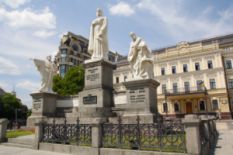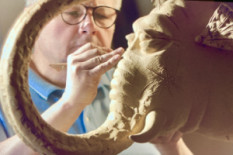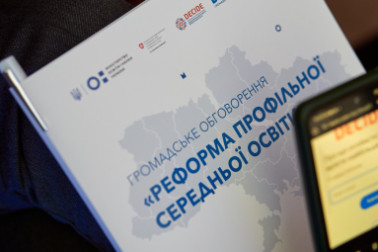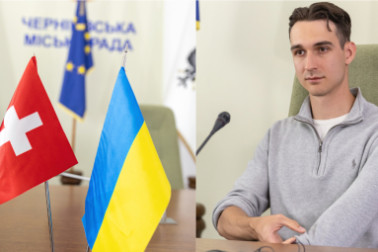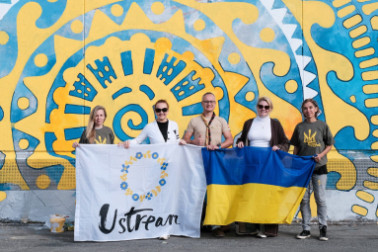At first glance, Zoya appears delicate and modest, yet she embodies the strong Ukrainian spirit and national identity that centuries of oppression under Russian tsarism, Soviet power, and the current military aggression of Russia could not break.
Zoya received a good education in her time and could have easily assimilated and become a typical European. However, she remained Ukrainian. She remained so even when it was not just difficult but even dangerous. Throughout her life, she has carried a love for her homeland and a unique Ukrainian national identity.
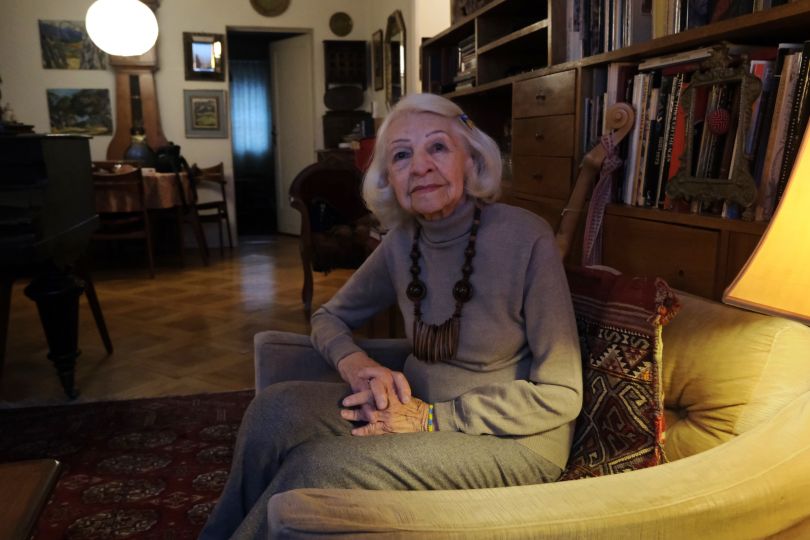
Our meeting took place at the home of Mrs. Zoya, where she lives and takes care of everything herself, despite being 96 years old. Every corner of her residence is imbued with love for Ukraine, but there is no excess or pretentiousness - everything is tastefully done. An interesting fact - even Mrs. Zoya's hair was arranged with yellow and blue hairpins. It may seem like a small detail, but it speaks volumes about a person's consciousness.
Zoya Lysivska-Nyzhankivska's life is not easy, but it is incredibly interesting. She experienced World War II far from her parents, then emigrated and started a new life in Europe, where she engaged in a constant, fierce struggle for Ukraine, its culture, and history. Sometimes our interlocutor would deviate from the question asked and dive into memories, but Mrs. Zoya's stories, her voice, and her melodic Ukrainian language were so enchanting that we just listened, recorded, and shared with our readers.
Here is Zoya Lysivska-Nyzhankivska's story:
Childhood and World War II
"Our family lived in Lviv. Once my parents decided to send me to their acquaintances in the mountainous Hutsul region. They also had a girl named Vira (future famous Ukrainian writer Vira Vovk - Ed.) with whom we became very close friends, almost like sisters. They were such wonderful people, you can't imagine. Everything charmed me - their language, way of life, attitude towards others - everything was amazing. Vira and I spent our time very well, she wrote and I drew. But time passed, and I had to return to school in Lviv on September 1... But then the war began. Vira's father was a skilled doctor. One day a Soviet officer came to him and said that he and his family were already on the list for arrest and deportation to Siberia, so he should take his children and run. That's how the situation arose I couldn't go home because of the war, and they took someone else's child and simply left their homeland. So we moved to Germany, and eventually, my family was able to escape from the Soviets to Vienna. Only then was I able to return to my mother."
"We grew up in the spirit that we must fight for Ukraine, for its culture and history"
Persecution of Ukrainian Emigrants
"After the Germans fled from the Austrian capital, leaving 14-year-old boys to defend the city, the Soviets quickly defeated them. At that time, the streets of magnificent Vienna were horrible - littered with the bodies of these children. After establishing their control, the Soviets began searching for and arresting Ukrainian refugees in Austria for deportation to the territory of the Soviet Union."
Our family, along with my uncle's family, found refuge in the British sector of responsibility in Vienna. It should be noted that we lived very difficult lives. There was nothing to eat. We traded food for valuable items, jewelry. One day, our uncle went out looking for food when a Soviet car pulled up. People got out, grabbed him, and took him in an unknown direction. Fortunately, our acquaintance witnessed this crime. What to do? We had to save our uncle. The Soviets had no right to arrest him because it was a British security sector. Only I knew a little bit of English, so I had to go to the commander of the Vienna sector. There were lots of people near the building. It was my turn, and I was still a child, confused and didn't know what to say. But I managed to gather myself and said that the Soviets had taken my uncle and asked for help to save him. He looked at me and replied, "I'll do what I can. Next, please." That was it. I left in despair. Uncle was missing, and we couldn't help him. But two weeks later, he returned, thanks to the English commander. He eventually became our friend and helped us leave Vienna for the Ukrainian refugees and emigrants camp. It helped us a lot."
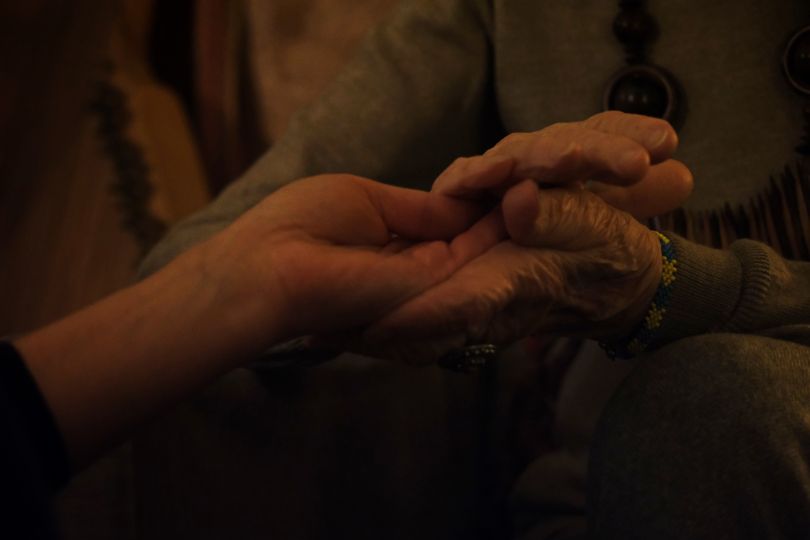
Life in Switzerland
“Ukrainians were perhaps the first wave of immigrants in Switzerland. At that time, this country did not accept everyone who wished to come, but we managed to settle here. Our family also tried to make a life here. My husband (Oleg Nyzhankivskyi, - ed.) got the opportunity to sing in a choir as a soloist. I held exhibitions and belonged to the women's association of artists. Then children were born (Lada-Ariana Nyzhankivska-Kuks, Roman Nyzhankivskyi, - ed.). After 14 years of living here, we finally received citizenship and could not believe our happiness,”.
"I would like to wish that all our people return to the national treasure - the Ukrainian language"
Struggle for Ukraine
"The Soviet propaganda was no less effective than today's Russian propaganda. I remember the story of the celebration of the 1000th anniversary of the Baptism of Rus. The local intelligentsia gathered in the Cathedral of Geneva. After the service, the pastor invited everyone interested to the parish house for a showing of a film about the celebration of this event by Moscow. He was personally invited to this event. And so we are shown this film, telling us how great Moscow is, how it brought the light of faith to the East, what a significant event it is. And the pastor, knowing that I am from Ukraine, looks at me as if to say, "It's all true." You can't even imagine the emotions I went through then, the thoughts I had as a Ukrainian after hearing all of that. Gathering my thoughts, I stood up and spoke about how what was told and shown today was completely different. The priest even gasped. Everyone present fell silent and listened as I spoke about how Christianity came to Ukraine from the Kyiv Prince Volodymyr the Great and all the other truthful facts of this historical event. Just imagine how one Ukrainian had to defend my country's right to its national identity to the whole of Geneva."
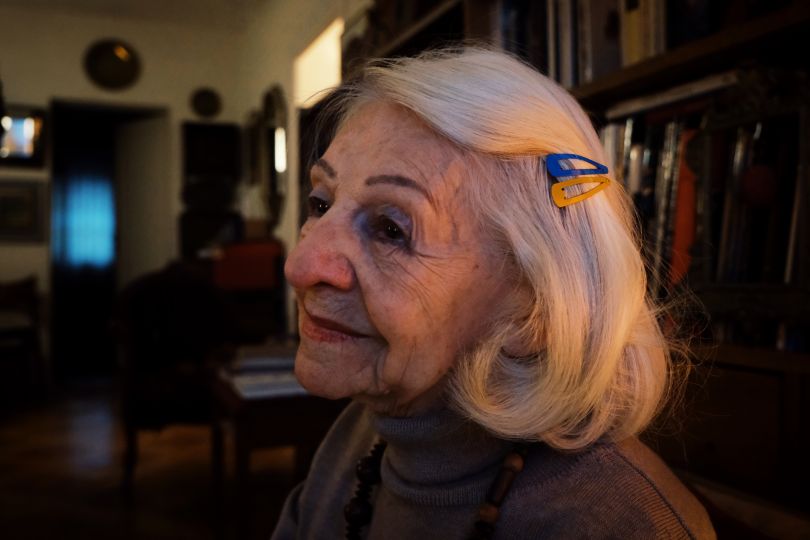
National Self-Awareness and Identity
The Western world really got to know Ukraine only after 2014, and before those events on Maidan, there was almost a void in this direction. What can one talk about when, for example, in Switzerland, there was a belief for a long time that if you're from Ukraine, then you speak "Russian"? Such a course of events was changed by the current bloody war. It turns out that the world has realized that Ukrainians are not "Moskali," and that we have our unique culture and history, only through such tragic events. As for me, I only lived in Ukraine for 10 years, but I have lived with Ukraine in my heart since childhood and to this day. Understanding the time and circumstances in which we lived then is necessary. On the one hand, our country was under Moscow, and on the other hand, under Poland. We grew up in the spirit that we must fight for Ukraine, for its culture and history. As little children, we sang patriotic songs when Polish prisons were full of our patriots who fought for Ukrainian identity. From childhood to adulthood, everyone resisted the absorption of Ukraine.
Mother's Songs
I just started speaking normally in childhood, but I already loved to sing. I now have 100 songs in my head. I love Lemko songs very much. But still, I love the works that my mother wrote the most - the first female composer in Ukraine. For that time, it was something extraordinary and unheard of (Stefania Turkewich-Lukyanovych - officially recognized as the first Ukrainian composer. During the Soviet era, her works were banned by the state authorities)
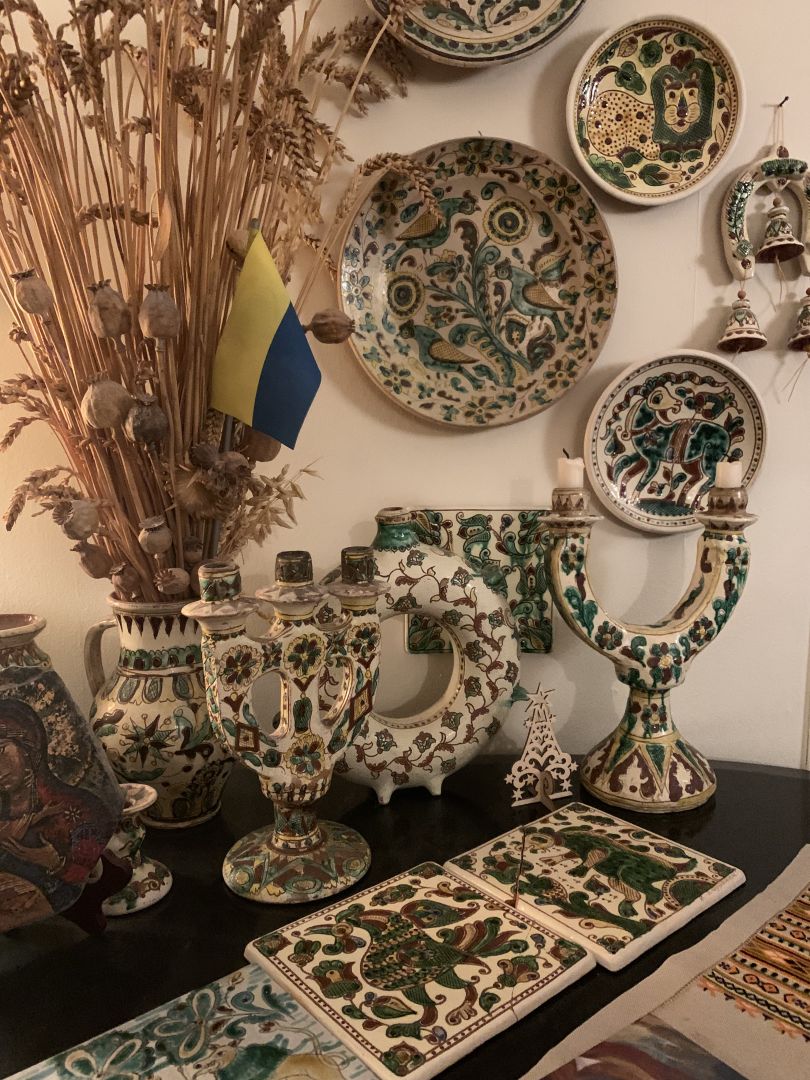
Swiss people
"People here are more closed in character, influenced by the mountainous terrain. But if you have a Swiss friend, know that they are very loyal friends. I am immensely grateful to them for the help and the reaction they showed after the Russian attack. It was something extraordinary. Such an outpouring of humanity, assistance, and understanding of what is happening deserves respect. On our part, we need to continue to talk about Ukraine, its people, history, culture, and more."
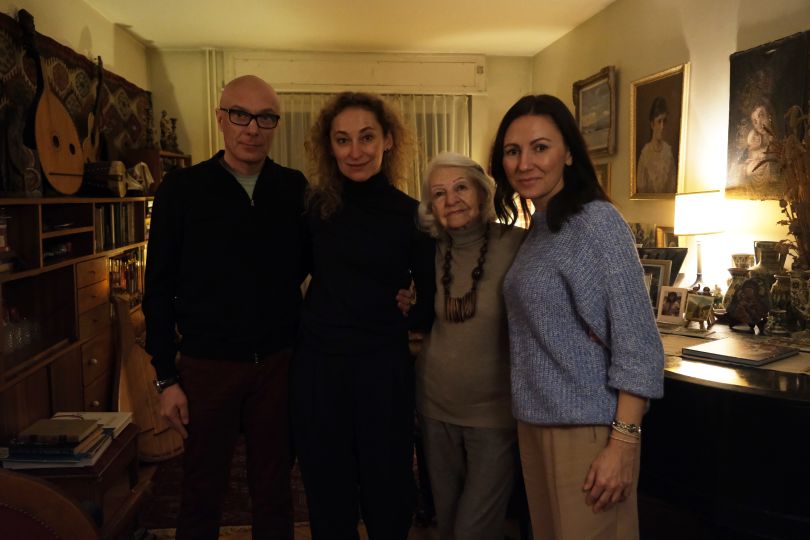
Message to Ukrainians
"I would like to wish that all our people return to the national treasure - the Ukrainian language, that parents teach their children in Ukrainian and do not speak Russian to them after school, because Moscow is our enemy. Russians have brought much evil to Ukraine."
After such meetings, you understand that people like Zoya Lisovska-Nyzhankivska are the guardians of the Ukrainian national code. Thanks to their efforts and struggle, Ukraine and Ukrainian identity are preserved in the most difficult times in its history. That is why their creative heritage, stories, memories, and wishes for the new generation of Ukrainians are a treasure that needs to be preserved and remembered.
Interview: Inna Geletyuk-Katiushchenko, Nataliya Kontsur
Image and Video: Ilona Chesanovska
